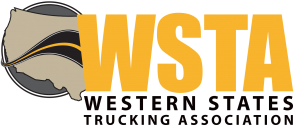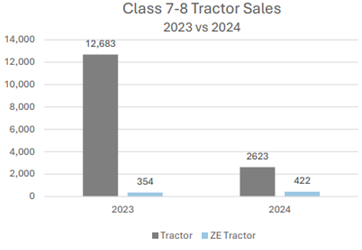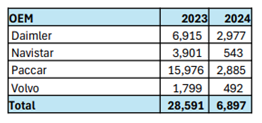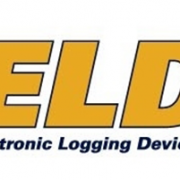Governor Newsom Press Office: “The Facts are Plain and Simple — California Commercial Driver’s License Holders Had a Fatal Crash Rate Nearly 40% LOWER than the National Average”
Where did that stat come from?
The “whizzing match” between Governor Newsom and the Trump Administration (specifically Transportation Secretary Sean Duffy) over crashes involving California commercial drivers license (CDL) holders has exploded into a disgusting display of political gamesmanship.
After deadly crashes involving some California licensed CDL holders, U.S. DOT demanded California quit issuing non-domiciled CDL’s (which the state ignored) and begin enforcing English language understanding regulations at roadside inspections (which California until recently had refused to do).
In both instances California stands to potentially lose billions of dollars in federal aid for highways for lack of compliance and even have its CDL program decertified which would mean CDL holders in California could not leave the state. In response to U.S. DOT’s findings after an investigation into California licensing practices, the Governor’s office issued the quote in our article title to defend the state’s non-compliance with certain federal requirements. NOTE: On January 7th, U.S. DOT did withhold $160 million from California for non-compliance (read here).
Q: Where did they come up with those “facts” and is it true?
While the state may have some more up-to-date data than is publicly available, the latest data on the Federal Motor Carrier Safety Administration’s (FMCSA) website involving fatality rates by state for large trucks is from 2022. It does show California with a fatality rate of .14 per million Vehicle Miles Traveled (VMT) compared to a national fatality rate of .19 VMT. Which is actually 25% LOWER than the national average (we’ve included the graph from FMCSA), not 40%.
To achieve a fatality rate of 40% below the national average, California’s rate would need to be at a .11 VMT currently. It’s possible since the state has in the past been one of the best nationally in achieving a low truck involved fatality rate. However, without crying foul on the Governors Press Office, lets analyze this deeper. It is more complex than the Governor cares to admit nor for the media simply reporting statements without verifying them – as happens all the time these days.
Why is VMT so important?
California always records the second highest truck involved fatalities by state in the U.S., second to the state of Texas – which is a function of California’s large population and center of much economic activity and by extension large truck population.
In 2022 California had 436 truck involved fatalities compared with Texas having 810. The jurisdiction with the lowest number was, and always is the District of Columbia with 3 fatalities. Mostly, smaller northeastern states like Connecticut, Rhode Island, and Vermont record the lowest fatality VMT rates simply because the states are smaller and don’t have the same volume of truck traffic as larger states.
By using total vehicle miles traveled by trucks in each state you can come up with statistic that regardless of the year or the economy gives you a fair way to compare fatal truck crashes between jurisdictions and during different various economic cycles – and see which state is doing a decent job in highway safety. The key metric used is total vehicle miles traveled divided by number of fatalities.
Historical truck fatality comparisons for California
| YEAR | FATALITIES | MILLION VMT | FATALITY RATE |
| 2011 | 296 | 320,784 | .09 |
| 2012 | 277 | 326,272 | .08 |
| 2013 | 269 | 329,534 | .08 |
| 2014 | 324 | 332,857 | .10 |
| 2015 | 313 | 335,739 | .09 |
| 2016 | 341 | 340,115 | .10 |
| 2017 | 383 | 343,862 | .11 |
| 2018 | 399 | 348,796 | .11 |
| 2019 | 429 | 340,836 | .13 |
| 2020 | 427 | 299,812 | .14 |
| 2021 | 447 | 310,823 | .14 |
| 2022 | 436 | 315,244 | .14 |
In attempting to make assessments comparing years, you must remember that in 2011 and 2012, we were still emerging from the “Great Recession” with lower economic activity thus historically lower VMT for trucks. 2020 and 2021 however show something changed; we were in the midst of the COVID lockdown with again lower VMT and economic activity but the number of truck involved fatalities continued to increase. In fact, the only 40 percent number we can validate is that is the percentage increase in truck involved fatal crashes inside California since 2011. The trend ever since emerging from the Great Recession has unfortunately been upward as illustrated in the graph above.
California’s ranking among the states has stayed relatively steady either in the 11th or 12th spot nationally even when tied with another state. In terms of comparing California to other large population states California has held steady in its ranking having one of the lower fatality rates based on VMT. As in California, across the country, truck involved fatality rates have increased.
Factors going into California’s CMV lower fatality rate
Congested urban centers: California metropolitan areas, specifically the LA Basin and Bay area are always at the top of having the most congested highways in the world. Congested highways also mean very low average speed which does translate into lower crash severity when they happen.
Statewide 55 MPH speed limit for trucks: While not liked by many truckers, the states speed limit for trucks does lower crash severity when one occurs. Of course, it does “likely” lead to an increase in rear-end crashes which are often deadly to car occupants and CHP is shy about releasing stats on how often this is associated with truck crashes in California. In comparison, Texas with over 800 truck involved fatal crashes has posted speed limits – which includes trucks at 80 and 85 mph.
Enforcement: The California Highway Patrol has if not the most, it is at the top of states in enforcing commercial vehicle regulations especially its notorious reputation for inspecting trucks. California has always enforced aggressively on truck operators in the state, even before many other states began doing the same. All this despite U.S. DOT pulling roughly $40 million from California for enforcement activities because the state refused to enforce English sufficiency standards at roadside. This is changing.
“Lies, damned lies, and statistics”
That quote often used by Mark Twain describes the power of using statistics to bolster weak arguments. When the Governors office claims California CDL holders have a much better crash rate when compared to national average, there is an element of Mark Twain’s statement in what is being said.
The feds compile their safety statistics state-by-state from actual accident reports, so the data presented only tells the story of what happens within a single state, it doesn’t tell whether licensed drivers from any particular state represents a higher crash risk when operating outside of their home state.
Re-read the section previous to this one, California enforces aggressively on trucks. The other “factoid” important to know when looking at trucking crash data is that the vast majority of California’s commercial drivers only operate within the state – they don’t leave California – ever. This means they are always under the watchful eye of CHP and its aggressive enforcement practices. DMV data shows a massive number of commercial vehicles registered to operate within the state, only a small percentage operate outside the state.
DRIVER’S LICENSES ISSUED – 690,676 Commercial (Class A or B)
VEHICLES – CVRA trucks – 500,411 (applies to commercial operated vehicle over 10,000 pounds) SE plated vehicles are excluded.
Non-CVRA trucks – 5,507,246
CA based IRP trucks – 118,520
California has a relatively small number of trucks registered to operate outside the state through IRP (yes, you can make an occasional journey using trip permits if you have federal operating authority) so the crash statistics are greatly influenced by this and of course out-of-state trucks operating in California.
What is missing in all data is the crash rate of drivers operating outside their home state but involved in fatal crashes – this is the current focus of U.S. DOT even though data sets on this type of statistic are not publicly available. Maybe its higher than average, but maybe its not, we just don’t know, and it would be useful if U.S. DOT published that type of stat to show if certain states are really having a problem with driver licensing. This isn’t as difficult as it sounds since all accident reports do include the drivers license number from the state of issuance.
Conclusion
The “whizzing match” between Newsom and Trump serves no useful purpose if “highway safety” improvements are the goal. The statistical evidence does show California’s truck involved fatality rate has increased dramatically – over 40 percent in an eleven-year time span, it just keeps increasing as it is with other states. Clearly, something is wrong and while politicians produce “stats” often without context, there is a major problem and anecdotally many in trucking know it’s the caliber (or lack thereof) of drivers entering the industry, driver training and an ineffectual driver licensing system handing out CDL’s like candy to anyone.






